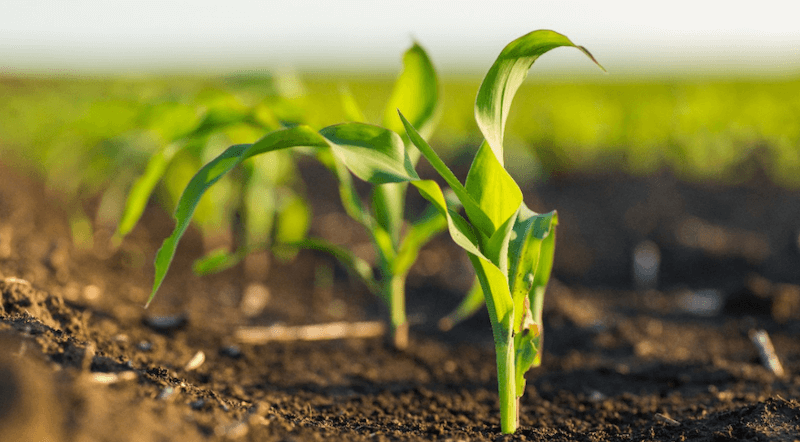
Organic farming is a growing trend, gaining traction in recent times, as consumer consciousness increases regarding the environmental implications of traditional farming and the possible health hazards of consuming foods treated with artificial chemicals. Organic farming is a holistic methodology in agriculture that prioritizes the well-being of the soil, the diversity of species, and the equilibrium of ecosystems, concurrently delivering nutritious food of excellent quality. This article delves into the history, principles, and key techniques used in organic farming.
The concept of organic farming emerged in the 1940’s with the publication of a book called, "An Agricultural Testament", that advocated that agriculture work with and support the environment rather than against it by using compost and natural manures instead of synthetic fertilizers and pesticides.
From Howard's era to the present, organic farming has evolved into a worldwide movement, embraced by numerous farmers and consumers. The core principles of organic farming encompass:
Fostering soil health: Organic farmers strive to nurture healthy, fertile soils abundant in organic matter, microorganisms, and nutrients. Synthetic fertilizers and pesticides, which can degrade soil health and diminish biodiversity, are avoided.
Environmental preservation: Organic farming minimizes adverse impact on the environment, including the reduction of greenhouse gases, water conservation, and supporting biodiversity.
Production of wholesome food: Organic farming methods promotes the humane treatment of animals, so they have ample space, food, and shelter.
Producing nutritious food: The goal of organic farmers is to produce nutrient rich food, devoid of harmful chemicals.

Organic farmers employ several techniques to achieve these golas. Some of the pivotal ones include:
Composting: This natural process decomposes organic matter into nutrient-packed soil additives. Organic farmers compost to improve soil and grow productive plants. Composting can utilize various materials like food waste, garden waste, and manure.
Cover crops: These are plants specifically cultivated to guard and enrich the soil during the non-growing season. They assist in preventing erosion, controlling weeds, and enhancing soil structure.
Crop rotation: This involves alternating different crops in a field to prevent soil nutrient depletion and mitigate pest and disease prevalence, thereby improving soil structure and biodiversity.
Green manure: These crops are specifically cultivated to be tilled back into the soil as a source of organic matter and nutrients, improving soil fertility and structure.
Compost tea: This liquid fertilizer, created by soaking compost in water, supplies nutrients to plants and enriches soil health.
Integrated pest management (IPM): This involves a combination of methods for pest control, incorporating biological controls and cultural practices rather than solely relying on chemical pesticides. This approach reduces the negative environmental impact of pesticides and supports biodiversity.
Organic certification: This certification process verifies farms and food products against specified organic standards, often restricting synthetic chemical usage. It helps consumers make informed choices about their food purchases and ensures organic farmers follow best practices.
Organic matter: Organic matter is material derived from living organisms that can be used as a soil amendment to improve soil health. Organic farmers aim to build and maintain healthy levels of organic matter in their soils because it provides a variety of benefits to both the soil and the plants that grow in it. Organic matter can improve soil structure, increase water-holding capacity, and provide essential nutrients to plants. It also serves as a food source for beneficial microorganisms, which can help promote soil health and reduce the incidence of plant diseases.
Soil fertility: Soil fertility is the ability of soil to provide essential nutrients to support plant growth. Organic farmers aim to maintain healthy levels of soil fertility using natural methods, such as composting, cover cropping, and crop rotation. By building and maintaining healthy soils, organic farmers can help produce healthy, nutritious crops without relying on synthetic fertilizers.
Soil structure: Soil structure affects the physical properties of soil, including its ability to hold water. By adopting organic farming practices, farmers can dramatically improve soil structure. to improve water infiltration, reduce erosion, and provide the perfect soil structure for plant roots to grow.
Vermiculture: Vermiculture is the process of using worms to break down organic matter into a nutrient-rich soil amendment called worm castings or vermicompost. This can be an effective way to compost food waste and other organic materials, while also producing a valuable soil amendment. Vermicompost can help improve soil fertility, structure, and microbial activity, making it a popular practice among organic.
Organic farming has been trending the past few years, as more consumers are realizing the environmental and health impacts of growing pesticide free food.
A significant benefit of organic farming is the premium prices it can command for produce and more profits for farmers. Because of higher costs associated with organic farming methods, organic farmers earn more for their crops. This can make organic farming a more profitable venture for farmers, and simultaneously provide consumers with access to healthful, sustainably produced food.
The practices and agricultural systems developed by Crop Circle Farms offer a holistic farming approach that enhances soil health, biodiversity, and ecological balance while also producing superior, nutritious food. By using naturally cavitated methods for soil enrichment, pest control, and crop management, Crop Circle Organic Farmers can significantly decrease agriculture's negative impact on the environment while producing healthy and tasty food.
Their specially patterned ground covers serve to protect the soil, curb weed growth, and retain moisture both below the ground cover in the soil and above it, beneath the crop plant canopy. This creates a level of humidity beneficial to plants. The processes at Crop Circle Organic Farming only use natural source seeds, plants, soil, and fertilizers to ensure the production of the highest quality certified organic vegetables and herbs.
Organic farming is more than just a trend – it's a commitment to grow the food we eat sustainably. By focusing on soil health, biodiversity, and ecological balance, organic farmers are helping to create a healthier planet and healthier food for all.
Organic Farming - Article Posted Sept 5, 2023